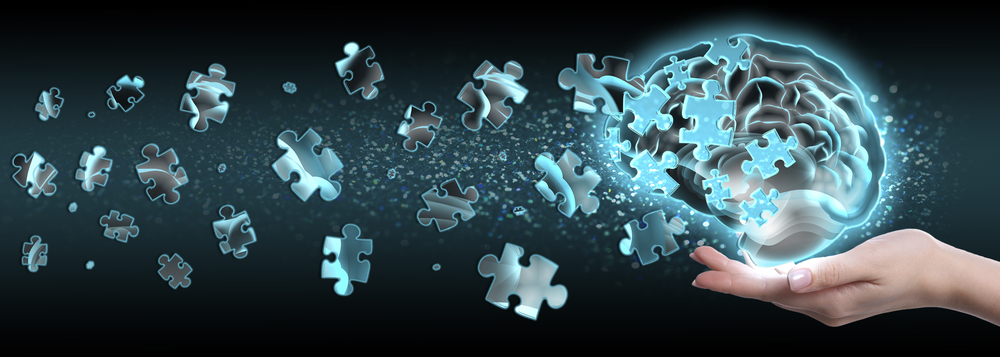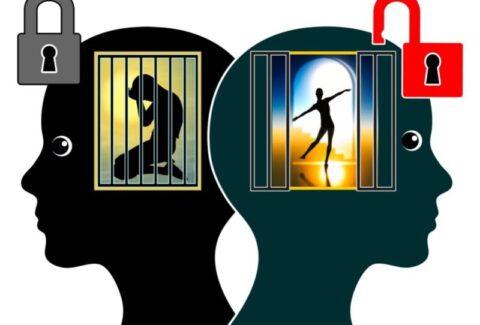The Power of Schemas
In the intricate dance between our minds and the world, there exists a silent choreographer known as schemas[1]. These cognitive constructs, woven from the fabric of our experiences, play an extraordinary role in shaping how we perceive, learn, and navigate the complexities of our existence. Far from mere mental blueprints, schemas are the architects of cognitive efficiency, the custodians of our memories, and the torchbearers of adaptive learning. Let us embark on a journey to unveil the profound power of schemas in the theater of the mind.
Cognitive Efficiency Unleashed
At the heart of the schema’s prowess lies its ability to streamline cognition.[2] Like a well-tuned orchestra conductor, schemas conduct the symphony of our thoughts, providing shortcuts that enhance cognitive efficiency. In the face of a barrage of stimuli, schemas allow us to swiftly categorize and interpret information, freeing our minds from the burden of constant recalibration.
Organizers of Knowledge
Schemas emerge as the virtuoso organizers of the vast repertoire of knowledge stored in our minds. They create mental filing systems, neatly categorizing information to enhance accessibility. This organizational finesse ensures that our memories are not scattered fragments but rather a coherent tapestry waiting to be unraveled.[3]
Learning’s Trusted Companion
In the dynamic realm of learning, schemas are steadfast companions. As we encounter new information, existing schemas act as gatekeepers, guiding the assimilation and integration of knowledge.[4] This symbiotic relationship between schemas and learning paves the way for continuous intellectual evolution.
Expectation and Prediction Masters
Schemas are the maestros of expectation and prediction. They generate scripts for familiar scenarios[5], allowing us to anticipate outcomes, make informed decisions, and navigate life with measured confidence. By weaving predictive patterns, schemas transform uncertainty into manageable probabilities.
Interpreters of Ambiguity
When faced with the ambiguous and the unknown, schemas step into the role of skilled interpreters. They fill in the blanks, drawing upon past experiences and knowledge to weave coherent narratives. In the face of uncertainty, schemas provide a compass, guiding us through the fog of ambiguity.[6]
Memory’s Architects
Schemas assume the role of memory architects, influencing how we encode and retrieve information. Memories aligned with our schemas are etched more vividly, enhancing recall.[7] These mental architects shape the contours of our past, creating a nuanced tapestry of recollections.
Problem-Solving Virtuosos
In the arena of problem-solving, schemas emerge as virtuosos. By applying familiar patterns of thinking, they become our guiding lights through the labyrinth of challenges.[8] Schemas infuse creativity into our approach, allowing us to generate solutions anchored in past successes.
Cultural and Social Navigators
Schemas are cultural and social compasses, shaping our understanding of societal norms, roles, and interactions. Rooted in cultural experiences, they illuminate the social landscape, enabling us to navigate the intricacies of human relationships and societal expectations.[9]
Adaptability Champions
A testament to their dynamism, schemas are champions of adaptability[10]. They evolve with each new experience, refining our understanding of the world. This adaptability ensures that our cognitive frameworks remain resilient, adjusting to the ever-shifting landscapes of our lives.
In the grand theater of the mind, schemas take center stage as the unsung heroes, orchestrating the symphony of cognition. As we unravel the layers of their influence, we discover that these cognitive architects are not mere spectators but active participants in our journey. They empower us to think, learn, remember, and navigate the world with a sophistication that reflects the intricate dance between mind and experience. Schemas, in their silent brilliance, are the silent maestros ensuring that the cognitive landscape is not a cacophony but a harmonious composition waiting to be explored.
Schema Therapy[11] offers a solution where Cognitive Behavioral Therapy may have fallen short. It integrates various evidence-based practices, including attachment theory, psychodynamic psychotherapy, mindfulness, and Gestalt therapy. This holistic approach blends the best of each method to engage clients effectively. Join our upcoming 6-Week Schema Therapy Certificate Course starting on July 2, 2024 and concluding on August 13, 2024. Secure your spot now by clicking here. Don’t miss out on this transformative opportunity. Take action today!
[1] Brewer, William F., and Glenn V. Nakamura. “The nature and functions of schemas.” Center for the Study of Reading Technical Report; no. 325 (1984).
[2] Dozois, David JA, and Aaron T. Beck. “Cognitive schemas, beliefs and assumptions.” Risk factors in depression (2008): 119-143.
[3] Tse, Dorothy, et al. “Schemas and memory consolidation.” Science 316.5821 (2007): 76-82.
[4] Baldwin, Mark W. “Relational schemas and the processing of social information.” Psychological bulletin 112.3 (1992): 461.
[5] Fiske, Susan T. “Schema-triggered affect: Applications to social perception.” Affect and cognition. Psychology Press, 2014. 55-78.
[6] Tversky, Amos, and Daniel Kahneman. “Causal schemas in judgments under uncertainty.” Progress in social psychology. Psychology Press, 2015. 49-72.
[7] Ghosh, Vanessa E., and Asaf Gilboa. “What is a memory schema? A historical perspective on current neuroscience literature.” Neuropsychologia 53 (2014): 104-114.
[8] Janovsky, Thomas, et al. “The relationship between early maladaptive schemas and interpersonal problems: A meta‐analytic review.” Clinical Psychology & Psychotherapy 27.3 (2020): 408-447.
[9] Leung, Kwok, and Michael W. Morris. “Values, schemas, and norms in the culture–behavior nexus: A situated dynamics framework.” Journal of International Business Studies 46 (2015): 1028-1050.
[10] Panahifar, Sajad, Naser Yousefi, and Ahmad Amani. “The effectiveness of schema-based couple therapy on early maladaptive schemata adjustment and the increase of divorce applicants adaptability.” Arabian Journal of Business and Management Review (Kuwait Chapter) 3.9 (2014): 339-346.
[11] Young, Jeffrey E., Janet S. Klosko, and Marjorie E. Weishaar. “Schema therapy.” New York: Guilford 254 (2003): 653-658.







